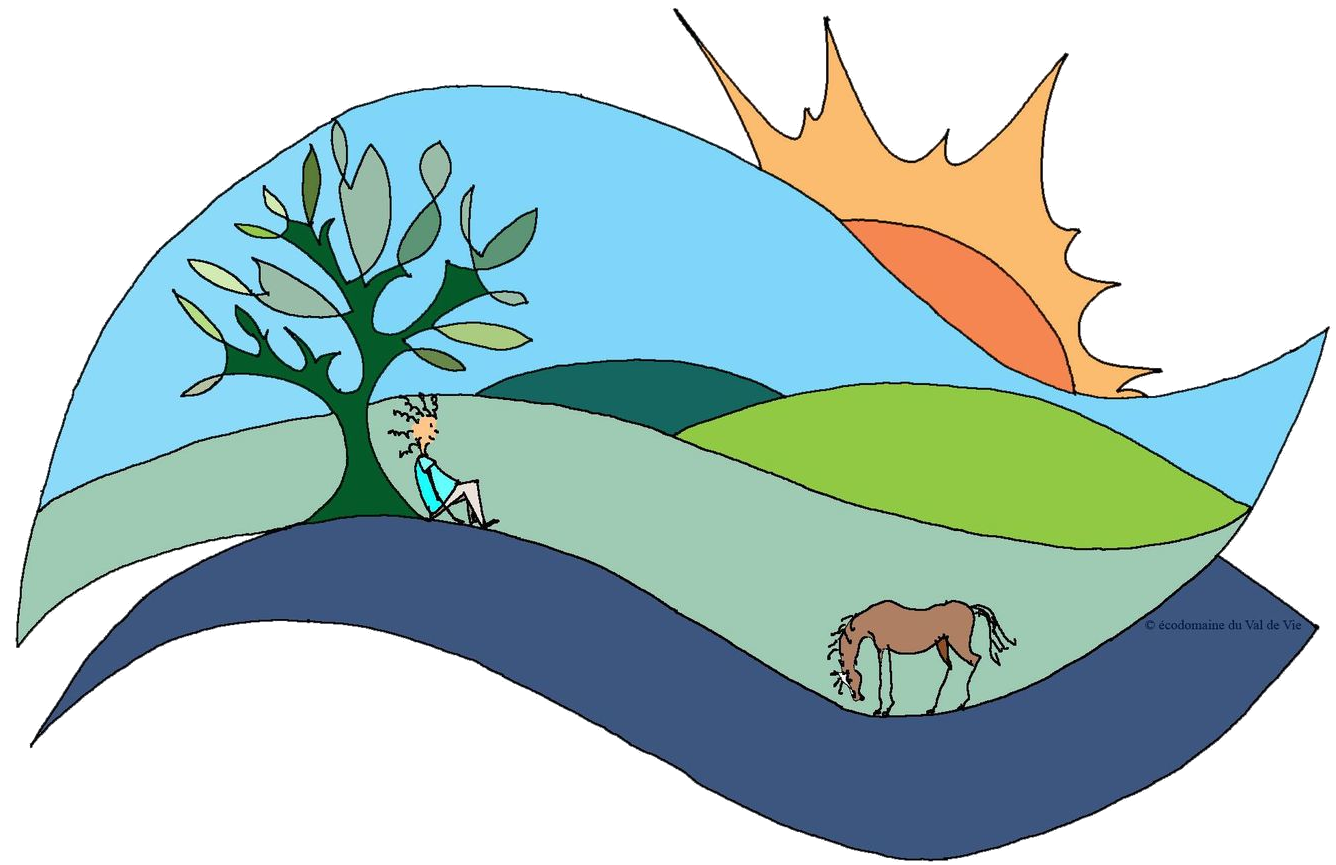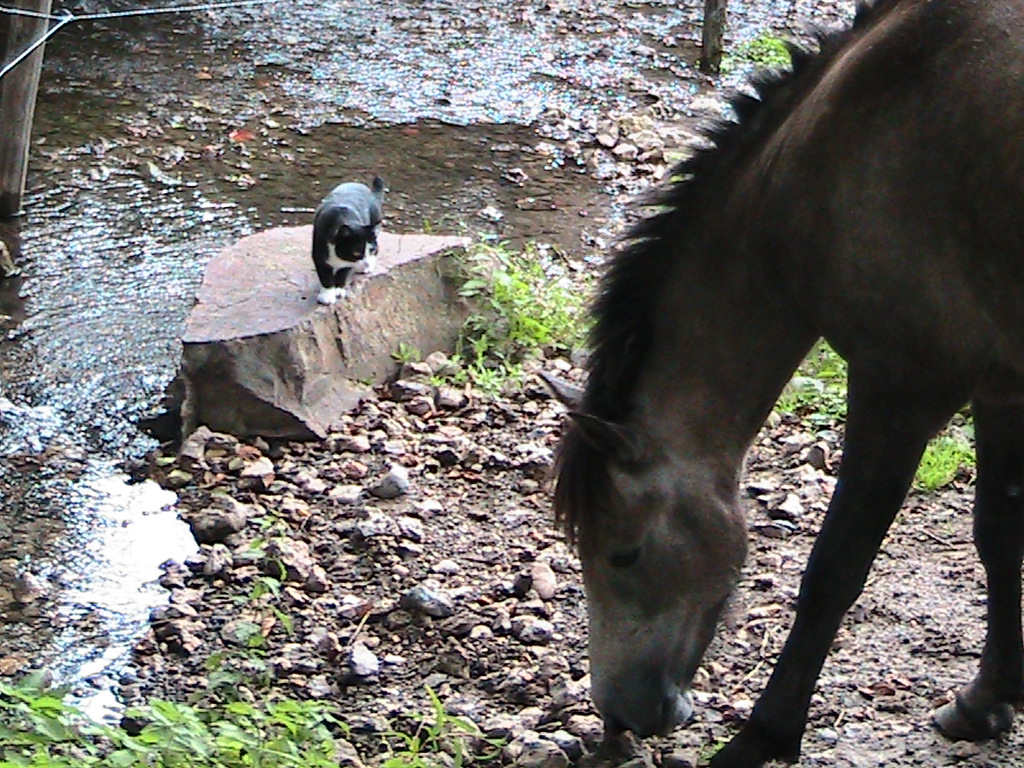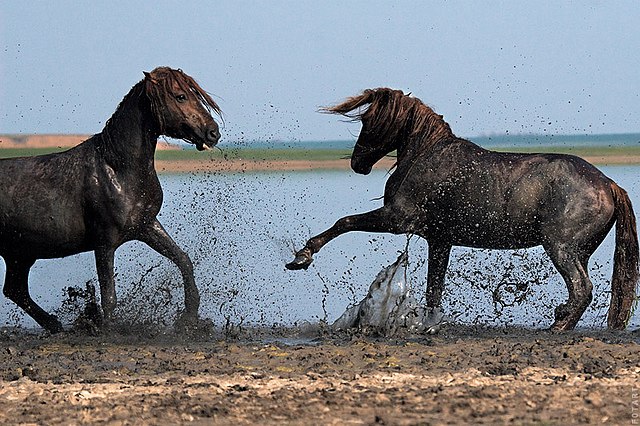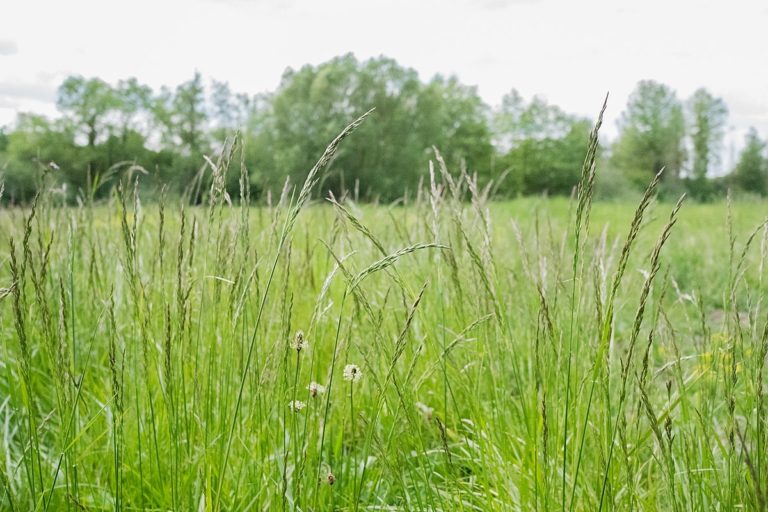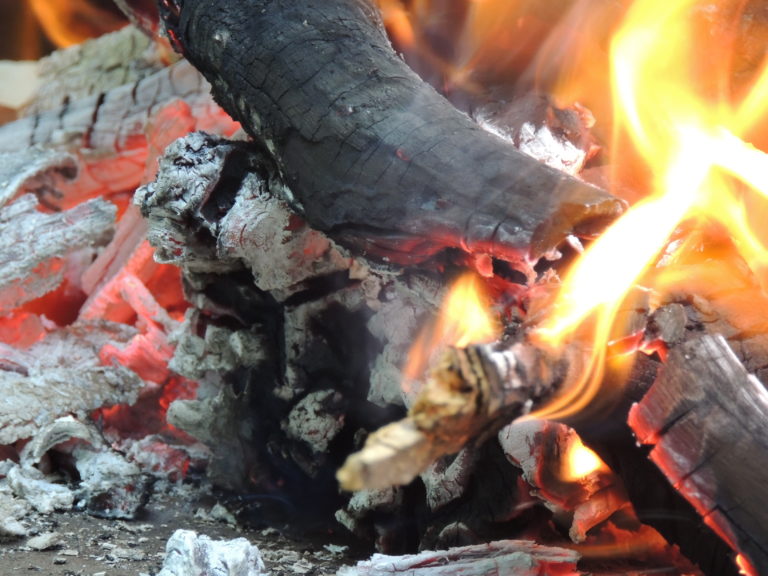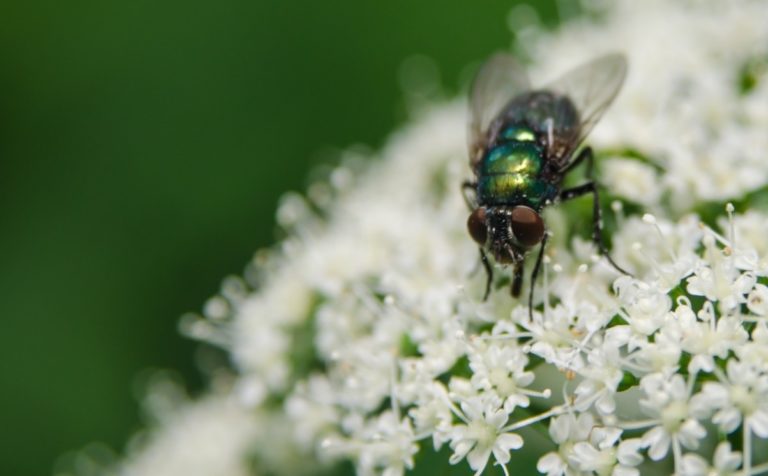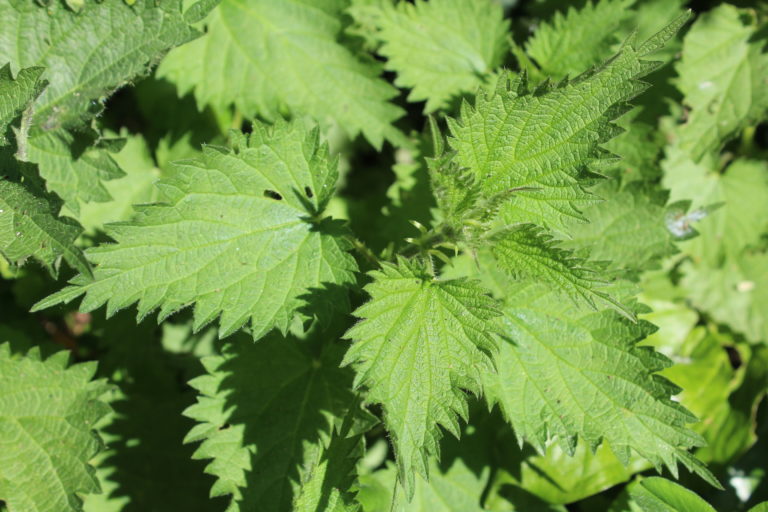Water for the horse in summer
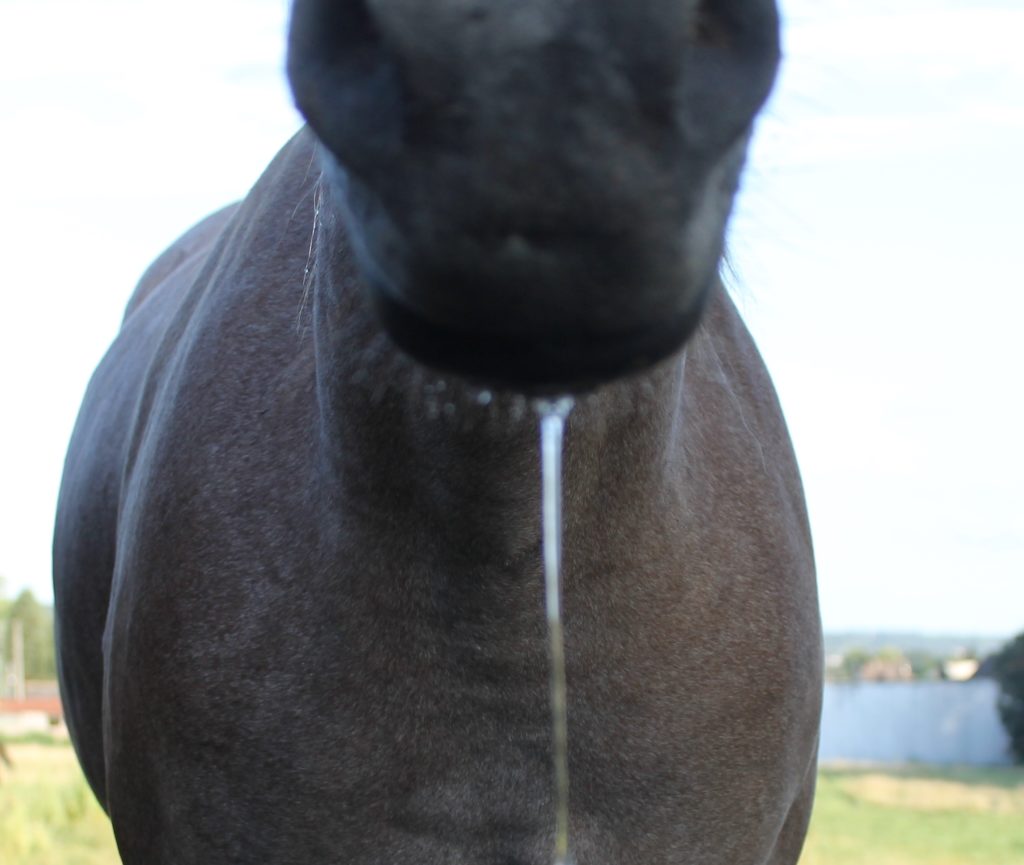
En permaculture équine la gestion de l’eau c’est aussi prendre en compte les besoins spécifiques du cheval pour assurer son bien-être physique et psychologique.
The water requirements for the horse in summer are not just drinking water.
- the drier the feed, and the more the horse sweats the more its needs increase,
- In addition, horses also generate "metabolic" water produced by oxidation of the energy nutrients they eat.
What are the horse's water needs in summer?
The horse will not die of thirst if it does not have access to water for 24 hours ... But its essential needs not being covered, the metabolic problems will increase and the deterioration of its state of health will be even faster in summer.
=> Do not take this risk: it is essential to guarantee them permanent access to drinking water.
Un cheval au repos a besoin d’environ 5 l d’eau pour 100 kg de PV. On estime les besoins annuels à environ 11m3 (pour le fameux cheval de 500 kg)
How to make your horse drink?
We have seen horses go for hours without drinking, even after sweating.
Tips to encourage them to drink:
- to begin with, leave them with warm, clean water available: horses have their preferences (level of acidity, mineral content, etc. smell). It is interesting to have the water given to the horses analyzed and to let the water from the network, which is often chlorinated, stand in the open air,
- and also add water to your food: by soaking the hay for example, by giving rehydrated hay cubes ...
- or make him want to drink by adding salt to his hay.
Check that your horse is not dehydrated
These are 3 basic equine first aid actions that you must learn to perform:
- measuring the capillary filling time, for example on the gingival mucosa,
- and the skin fold test,
- but also heart rate measurement.
=> changes in these vital signs occur when the horse is 4 to 6% dehydrated. Remember: the mass of living things is 70% water.
=> Dehydration begins as soon as the horse has not had the water ration corresponding to "average at rest" needs (between 20 and 25l for the day).
=> Visual signs such as sunken eyes and a tucked-back attitude appear when dehydration levels approach 8-10%.
How long does it take for a horse to become dehydrated?
It depends on many individual factors:
- feeding
- work and work intensity,
- gestation et lactation,
- age.
But also all the factors that will affect thermoregulation (read the article here).
=> In a study, Geor et al. showed that horses working at high temperatures (33-35 ° C) and high humidity (80-85%) increased their water consumption by 79% for four hours!
Health problems can also affect the horse's water needs:
- diarrhea,
- syndrome de Cushing,
- Insulin Resistance.
